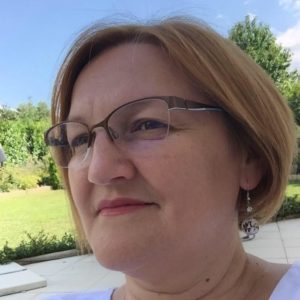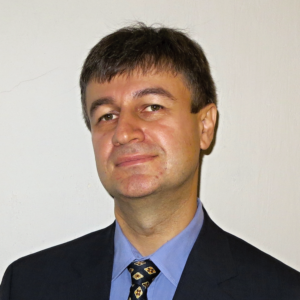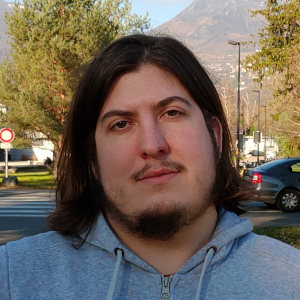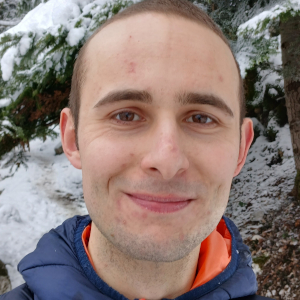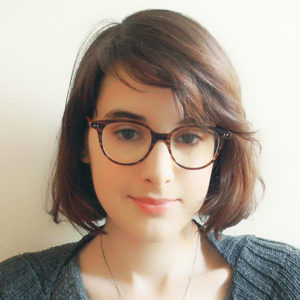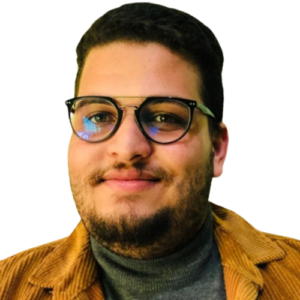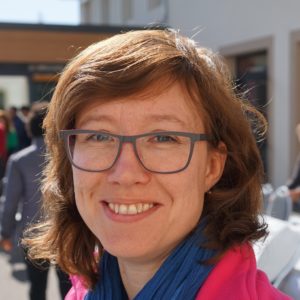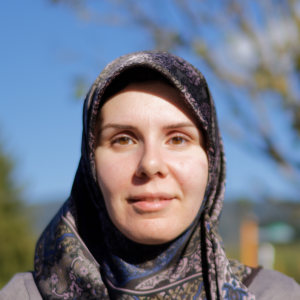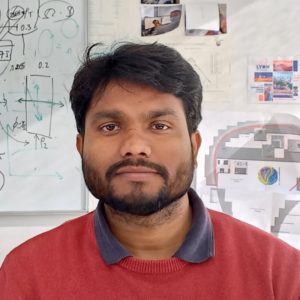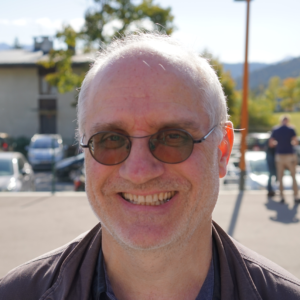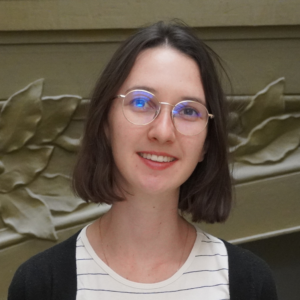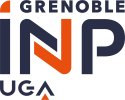Overview
The group covers all aspects of fundamental physics related to spin electronics by employing a wide range of theoretical approaches including ab initio, tight-binding, free electron and diffusive methods, combined with micromagnetic simulation approaches based on solution of Landau-Lifshitz-Gilbert (LLG) equation. This allows explaining experimental observations, providing solutions for specific problems and predicting novel properties and phenomena guiding the experimental work to optimize spintronic nanostructures.
Research directions
Electronic structure and magnetic properties of materials from first principles
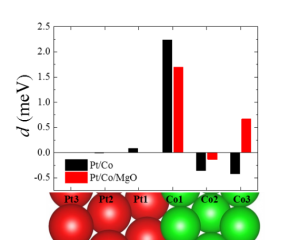
Ab initio calculations based on DFT are performed in order to provide insights into fundamental mechanisms of various spintronic phenomena, and to propose novel materials and their efficient combinations with required electronic structure and magnetic properties for optimal performance of spintronic devices.
Spin-dependent transport theories
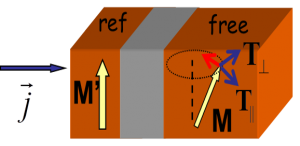
We employ tight-binding, free electron and diffusive approaches including Green function techniques in the framework of Keldysh and Kubo formalisms, in order to describe spin and charge transport properties in magnetic nanostructures with non-collinear magnetic moments in vertical, lateral and complex geometries.
Theoretical concepts for organic and graphene spintronics
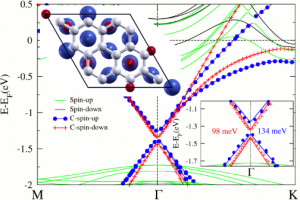
The goal of this topic is to harvest theoretically novel spin-dependent properties (e.g. proximity effects and defect induced magnetism etc.) in organic, graphene and related 2D materials based structures in the context of emerging field of graphene spintronics.
Micromagnetic modeling
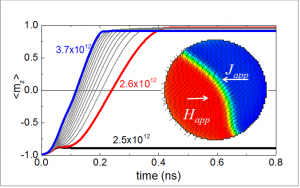
Magnetization dynamics (macrospin and micromagnetic) simulations under applied magnetic field and/or spin polarized currents are developed to address functionalities of spintronic devices (e.g. magnetization switching, synchronization and modulation for oscillators) in various geometries. Straightforward analytical models are developed to supplement fast and efficient understanding of the magnetization dynamics.
The team
Former members
Post-docs
- Ali HALLAL (2015-2019)
- Sergey NIKOLAEV (2015-2017)
- Debapriya CHAUDHURY (2016-2018)
- Cristian ORTIZ PAUYAC (2016-2017)
- Hongxin YANG (2013-2015)
PhD
- Daniel SOLIS LERMA (2016-2020)
- Paulo COELHO (with Magnetic Sensors Group, 2014-2017)
Internships
- Libor VOJACEK (2020)
- Brian CHARLES (with MRAM Group, 2016)
Projects
- ANR SpinSpike (2021-2024)
- ANR UFO (2021-2024)
- EU H2020 FET Project Flagship “Graphene” Core 3 (2020-2023)
- ANR MAGICVALLEY (2018-2021)
- ANR FEOrgSPIN (2018-2021)
- EU H2020 FET Project Flagship “Graphene” Core 2 (2018-2020)
- ANR JCJC MATEMAC-3D (2017-2020)
- EU H2020 ICT Project “SPICE” (2016-2020)
- EU H2020 ICT Project “GREAT” (2016-2019)
- ANR ELECSPIN (2016-2019)
- EU H2020 FET Project Flagship “Graphene” Core 1 (2016-2018)
- EU FET FP7 Project Flagship “Graphene” (2013-2016)
- EU M-ERA.NET HEUMEM supported via ANR-DFG (2014-2017)
- UGA Émergence et partenariat stratégique avec Western Digital (2015-2017)
- Samsung SGMI (2014-2017)
- ANR SOSPIN (2013-2016)
- ANR NMGEM (2010-2015)
- AGI14SMI15 AGIR (2014-2015)
Partners
- Transilvania University, Brasov, Romania
- IRIG/PHELIQS, Grenoble, France
- Institut Néel, Grenoble, France
- Unité Mixte Physique CNRS/Thalès, Palaiseau, France
- Laboratoire de Physique des Solides, Orsay, France
- Catalan Institute of Nanotechnology, Barcelona, Spain
- Institut Jean Lamour, Nancy, France
- Moscow Lomonosov State University, Moscow, Russia
- King Abdullah University of science and technology, Thuwal, Saudi Arabia
- University of Puerto Rico, San Juan, PR, USA
- Western Digital Corporation, CA, USA
- University of Bielefeld, Germany
- University of Kaiserslautern, Germany
- Max Planck Institute for Chemical Physics of Solids, Dresden, Germany
- Lawrence Berkeley National Laboratory, Berkeley, CA, USA
- ETH, Zurich, Switzerland
- NIMTE, Ningbo, China
Recent news
- PhD Defense – Phase dynamics of injection locked spin-torque nano-oscillators: from synchronization to Ising machines (March 17th, 2025)

On Tuesday April 01th, at 9:00, Mateo Ibarra Gomez (SPINTEC) will defend his PhD thesis entitled : Phase dynamics of injection locked spin-torque nano-oscillators: from synchronization to Ising machines Place : IRIG/SPINTEC, CEA Building 10.05, auditorium ... - Large Chiral Orbital Texture and Orbital Edelstein Effect in Co/Al Heterostructure (December 20th, 2024)

The emergence of a large helical orbital texture due to the formation of the surface states at the metallic Co/Al interfaces originating from the orbital Edelstein effect and giving rise to a nonequilibrium orbital accumulation ... - Field-Free Spin–Orbit Torque Switching in Janus Chromium Dichalcogenides (December 04th, 2024)

By performing transport simulations on carefully derived Wannier tight-binding models, Janus chromium-based transition-metal dichalcogenide (TMD) monolayers are found to exhibit a spin-orbit torque (SOT) performance comparable to the most efficient two-dimensional materials, while additionally allowing ... - seminar – Engineering quantum coherence and control in diluted spin systems (October 01st, 2024)

On Wednesday, November 13th 2024, we have the pleasure to welcome in SPINTEC Irinel Chiorescu from Florida State University. He will give us a seminar at 11:00 entitled : Engineering quantum coherence and control in diluted ... - seminar – Atomistic exploration of topological states in ultrathin magnetic films and nanopillars (September 03rd, 2024)

On Friday September 13th 2023, Louise DESPLAT from SPINTEC will give us a seminar at 11:00 entitled : Atomistic exploration of topological states in ultrathin magnetic films and nanopillars Place : IRIG/SPINTEC, auditorium 445 CEA Building 10.05 ...

